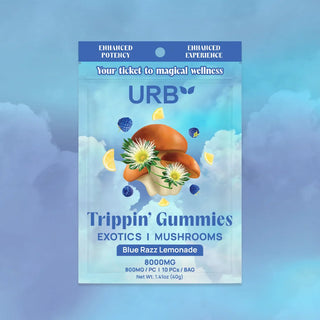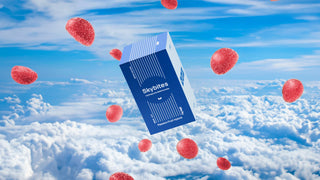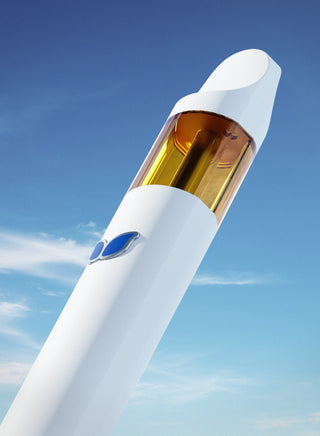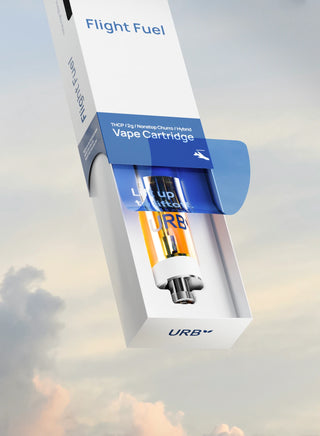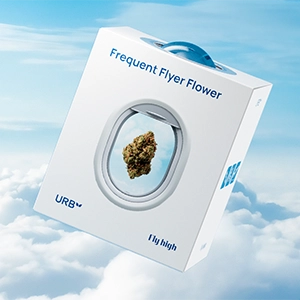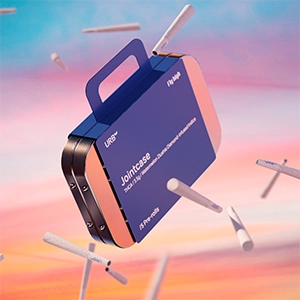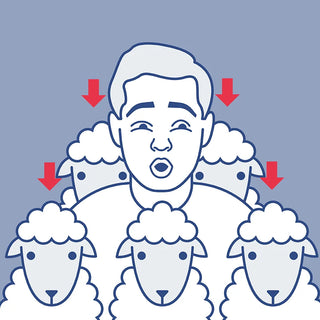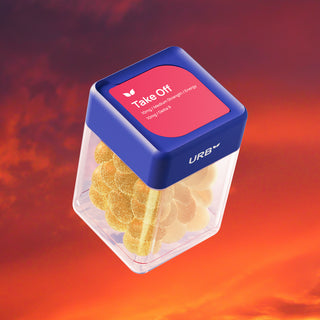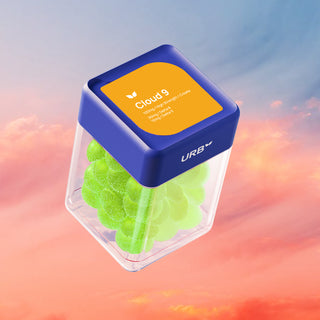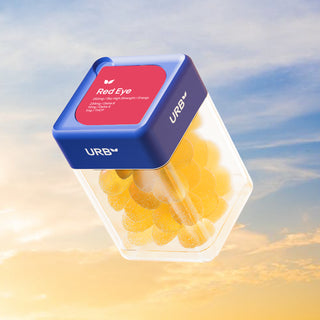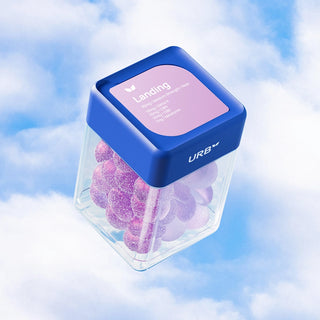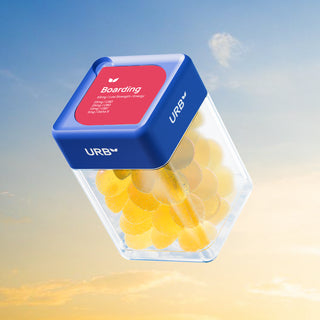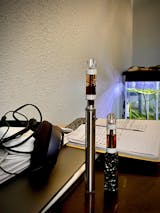From gas stations to boutique cannabis shops, Delta 8 is suddenly everywhere—and everyone has questions. What is Delta 8? A “cousin” of the better-known Delta-9 THC—the compound largely responsible for the cannabis plant’s classic euphoric effects—Delta-8 THC has psychoactive effects too, though they’re generally not as strong.
If this sounds like something you’d like to learn more about, we’re here to help. But we’re not here to hype things up; instead, our goal is to clarify what’s really going on with Delta 8, and how it might support your relaxation, health, and wellness goals.
What This Post Will Cover
Some of the questions we’ll answer include:
-
What is Delta 8?
-
How does Delta 8 interact with the body?
-
Delta 8 vs Delta 9: What’s the difference?
-
Is Delta 8 legal? A complicated “yes”
And much more. Ready? Let’s prepare for takeoff.
Quick Primer: What Is Delta 8?
A hemp-derived cannabinoid with a mellow psychoactive effect, Delta 8 is closely related to Delta 9—the “regular” form of THC. On the molecular level, the main difference is the placement of a single double bond, giving Delta 8 reduced potency compared with Delta 9 (but imparting some fascinating properties we’ll explore in just a moment).
Since only small amounts of Delta 8 are found in dry cannabis flower, it’s known as a minor cannabinoid. But thanks to molecular isolation and conversion techniques, it’s relatively easy to create D8 from the all-natural, USA-grown flowers we source here at URB. This also makes Delta 8 compliant under the provisions of the 2018 Farm Bill, though—as we’ll also explore in a moment—the legal picture is a bit more complicated than it might seem.

How Does Delta 8 Interact with the Body?
Compared with Delta 9 THC, our customers often describe the effects of Delta 8 as being clear, calming, body-focused, and typically less anxious or foggy. That’s because Delta 8 doesn’t bind as readily with the CB1 receptor cells that play a starring role in the endocannabinoid system (ECS), a crucial network that helps us regulate memory, immune function, and more.
Delta 8 does interact with CB2 receptors, but those aren’t generally associated with psychoactivity, which is another clue to the cannabinoid’s mellower effects.
Even if it seems like it’s suddenly everywhere, Delta-8 THC was first researched the 1960s, with several early studies suggesting the cannabinoid may have therapeutic benefits including antiemetic (anti-nausea), anxiolytic (anti-anxiety), appetite-stimulating, analgesic, and neuroprotective effects. Research into this compound is ongoing and still evolving.
Delta 8 vs Delta 9: What’s the Difference?
When they’re shopping for new cannabinoid formulations, many of our customers ask: “What is Delta 8 THC like compared with Delta 9 THC?” One way to think about it is that Delta 8 is like Delta 9’s smoother, less intense cousin: Still in the same family, just not as loud.
In other words, you’re less likely to experience a classic high-flying ride with Delta 8. But you may find deeper calm, a feeling of centeredness and chill, and a clear-headed peace that for many people hits the sweet spot they’ve been seeking (and not always finding) with Delta 9.
As we hinted a moment ago, that’s due to Delta 8 having that double bond located on the eighth carbon in its molecular structure, vs Delta 9 having it located on the ninth one. This tiny change makes all the difference when it comes to the effects of these two similar—but very different—forms of THC.
What About Delta 8 vs Delta 10?
Another cannabinoid that’s getting a lot of attention these days is Delta 10 THC. One of its defining features is an uplifting and energizing character. Users often report feeling more focused, creative, and alert after consuming it, and that it’s more cerebral than Delta 9.
So…what’s the difference between Delta 8 and Delta 10? If Delta 8 is your chill cousin, Delta 10 is the one who’s always caffeinated but somehow still cool. This makes it especially popular among those who seek out daytime cannabinoid products that promote productivity and mental clarity, not a full-body melt.
Like Delta 8, Delta 10 is federally legal under the 2018 Farm Bill (more on that in a moment), but as with all cannabinoid products, specific state laws may limit the sale of hemp-derived products.
Related: Learn more about D9, D10 and other forms of THC.
Is Delta 8 THC Legal? A Complicated Yes
If you know anything about cannabinoids such as Delta 8, it’s probably that they occupy a legal gray area. Under the 2018 Farm Bill, hemp products containing <.03% THC by weight are federally legal.

But some states still prohibit the sale of controlled substances made from hemp—even if they don’t contain intoxicating cannabinoids. On top of that, the legal landscape around hemp-derived products is fast-moving and volatile. If you’re in doubt about a specific product, consult the local laws where you live to see if hemp-derived Delta 8 is allowed.
This is a good opportunity to point out that all of URB’s products—including those containing Delta 8—are fully compliant with Federal law, and they’re subjected to rigorous thorough tests to demonstrate their quality and safety. That’s one of the major reasons we provide certificates of analysis for each and every product we offer. You’ll see state availability on all of our product pages.
How Do You Use Delta 8?
Delta 8 THC is available in many of the same convenient formats you know and love. Here’s a few of the most popular ones:
Delta 8 THC-Infused Gummies
One of the most popular ways to consume Delta 8 THC is in infused gummies. Because the standard dose is typically a single unit, gummies are simple to use with precision. Gummies also usually taste great—ours certainly do!—and there’s no end to delicious flavor combinations.
When it comes to their effects, Delta 8 gummies typically activate within 45 minutes (though they can take longer). On average, you can expect the effects to last for about 4 hours.
One of the easiest entry points for gummies are URB’s Gummy Getaway Bahamas D8 gummies (45mg D8 + 5mg D10), offering an island-inspired and uplifting experience in a fun edible format.
Delta 8 Vapes and Carts
Because they dispense cannabinoids in the form of a cooling mist, vapes are a fun and user-friendly way to access Delta 8. Our custom line of Delta 8 THC vapes and cartridges are a great option for people who want a rapid onset of effects, usually only taking a few minutes. They also offer a shorter duration (typically 1 - 2 hours) for those on a tighter time budget.
If you’re looking for a quick onset that you can take on the go, URB’s Aerovape Clarity offers an uplifting blend of D8 THC plus THCV, THCB, Delta 10, and H4CBD for a bright, daytime-ready experience.
Dabs and Infused Pre-Rolls
Recommended for more experienced users, these formats deliver a fast-acting, more intense ride. Dabs are typically consumed via a specialized piece of equipment known as a “dab rig” which functions a bit like a high-tech water pipe. Infused pre-rolls, on the other hand, offer Delta 8 in a fun and familiar format that’s perfect for sharing with friends.
Water Soluble Nano Drops
These custom tinctures offer the best of both worlds: A relatively rapid onset (15 - 45 minutes) and long-lasting effects that can last 2 - 4 hours, in some cases even longer. The portable, discreet format is a plus for those who want to dose on the go.
What Are the Effects of Delta 8 THC?
As we shared a moment ago, Delta 8 effects are often described as calm, clarifying, subtly relaxing, and mood-elevating.
That said, cannabis and hemp are unique in that everyone responds to them a bit differently. Expect your experience to be slightly distinct and personal; as we explored in the previous section, effects vary based on the consumption method you choose, on your personal physiology, prior cannabis experience, and other factors.
One variable is the family of compounds known as terpenes. Thanks to the phenomenon known as the entourage effect, there’s evidence that when taken together, cannabinoids and terpenes interact to modulate and even strengthen each other’s effects. That’s why we use carefully selected terpenes to blend with known Delta 8 benefits to impart highly targeted, effects-forward products that deliver consistent, reliable results each and every time.
Here at URB, we use it in our Euphoria, Relax, and Create blends (among other products), layering Delta 8 with supporting terpene profiles for a curated, custom experience.
Is Delta 8 THC Safe? What We Know So Far
Because of the lag in federally approved cannabinoid research, there’s not a ton of research on the safety profile of Delta 8. Thus far, the three most commonly reported side effects include:
-
Anxiety
-
Cough
-
Paranoia
That said, many users report that the side effects of Delta 8 are generally far milder than with Delta 9. At URB, we always suggest the tried-and-true “start low and go slow” strategy for those working with new compounds. We go the extra mile to minimize the potential for adverse reactions by focusing on quality above all else. That's why our award-winning Pegasus-certified Delta 8 oil is an industry standard: pure, potent, and free of any potential contaminants and toxins.
All of URB’s Delta-8 THC products are fully compliant with Federal law, and they’re subjected to rigorous and thorough tests to demonstrate their quality and safety. That’s why we provide certificates of analysis for each and every product we offer.
Explore Quality Delta 8 Products With URB
A hot “new” cannabinoid that’s quietly been seizing headlines, Delta 8 THC is a federally legal hemp-derived compound that promises gentler, more nuanced effects than its better-known “cousin” Delta 9 THC. Like all cannabinoids, it’s best used intentionally for targeted effects, including a clear, calming, and body-focused high that’s reported to be less foggy than Delta 9.
Whether you’re looking to focus, float, or fully unwind, there’s a Delta 8 blend to match. Explore URB’s award-winning Delta 8 experiences.

